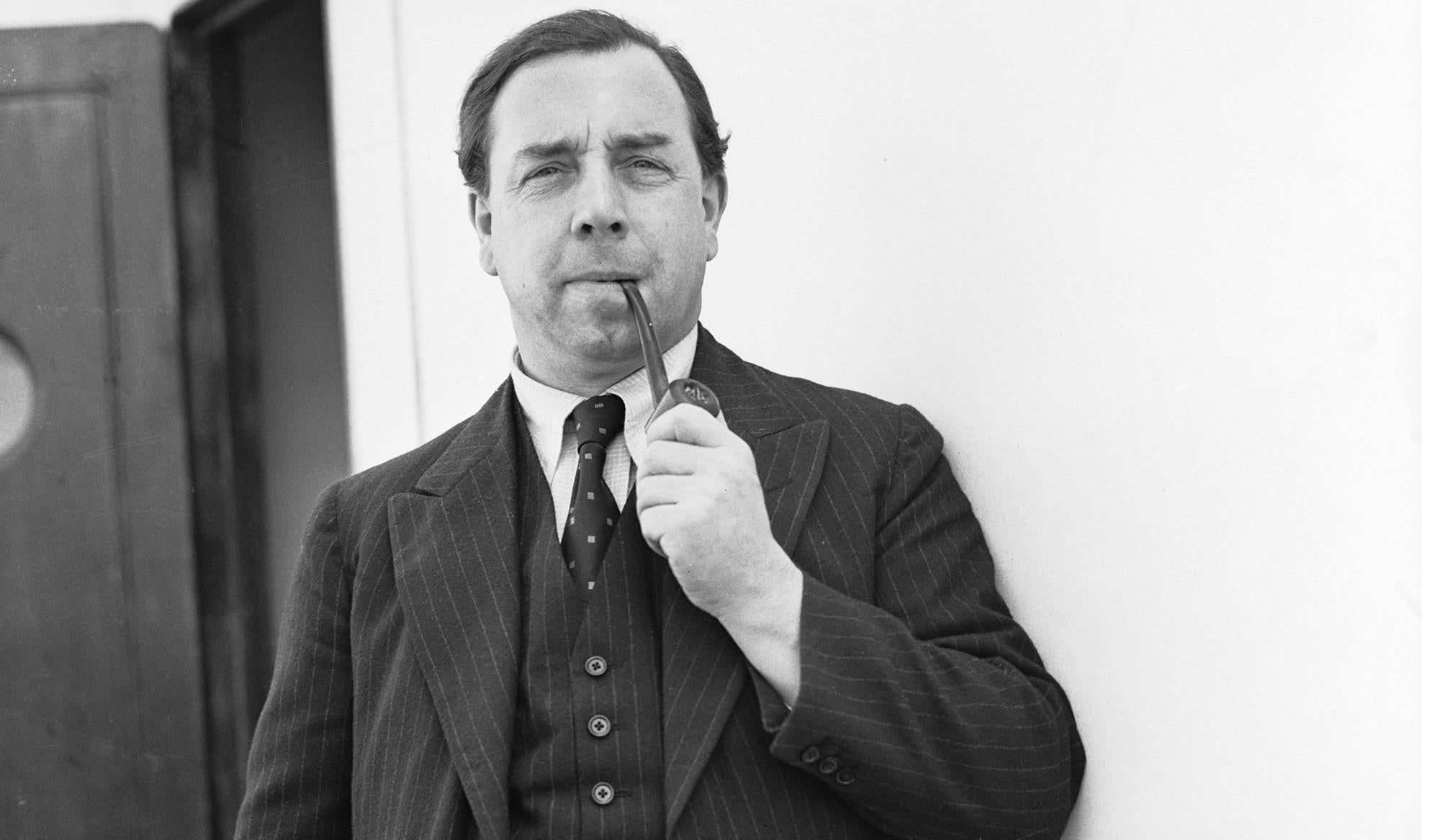Book of a lifetime: English Journey by JB Priestley
From The Independent archive: Helen Gordon goes rambling through many Englands with the famous polymath and finds his observations on ‘the lovely thickness of life’ still echo with great relevance today

I first picked up a copy of JB Priestley’s English Journey in the offices of Granta, the literary magazine where I went to work after university. Later, when I began my novel, Landfall, with a woman sitting on a plane reading Priestley’s travelogue, it was this specific copy I had in mind: a battered, dark blue hardcover marked with ghostly rings from a previous reader’s cup of coffee or glass of water.
Published in 1934, English Journey is a rambling and often very funny account of Priestley’s travels through rural and urban England in the autumn of 1933. He visits sleepy villages and sooty industrial towns, surveys decaying shipyards and modern factories. He describes a country in the grip of an economic slump, struggling with high levels of unemployment, but also home to a landscape rich in what he calls “these vague associations” of history and art – a “shamelessly romantic” Lincolnshire sky reminds him of Turner, a Hampshire field of Hazlitt.
Alternately charmed and angered by what he sees (and when angered he was always charmingly blunt), he returns regularly to the problem of maintaining a vital provincial life – newspapers, theatres, local politics – in an increasingly London-centric island.
At the time of publication English Journey was hugely influential, anticipating such projects as the Mass Observation Archive and George Orwell’s The Road to Wigan Pier. Today part of its charm is that of a glorious period piece thick with typewriters, tea rooms and men smoking pipes, but many of Priestley’s observations still feel fresh and important – and in our current economic climate it’s impossible to pick up a copy without marking a gloomy relevance.
Priestley’s demands for a better solution to the problem of long-term unemployment, a fairer distribution of national resources, continue to challenge us. “What,” he asks, writing about poverty and industrial decline, “had the City [of London] done for its old ally the industrial North? It seemed to have done what the black-moustached glossy gentleman in the old melodrama always did to the innocent village maiden”. The author would have been angered and saddened to read a recent study in the British Medical Journal reporting that the North-South mortality difference is now at its widest for 40 years.
Priestley identifies three Englands: Old England, a tourist’s paradise of minsters and manors; 19th century England, a blackened industrial landscape; and New England, a country just coming into being, a place of increasing standardisation, mass motor travel, swimming pools, bungalows, and American celebrities.
Here, in the depiction of that last England, was a fascinating snapshot of the beginnings of the country I saw around me, the suburban landscape I had grown up in. Though a very different sort of book, Landfall grew partly out of a desire to record something of what Priestley’s New England had become (in the South at least), and to trace the echoes of those older Englands that make up “the lovely thickness of life”.



Join our commenting forum
Join thought-provoking conversations, follow other Independent readers and see their replies
Comments